The Union health ministry on Monday issued a list of security measures to be implemented at all central government hospitals which include strict monitoring of the entry and exit and providing escort to women health professionals at night.
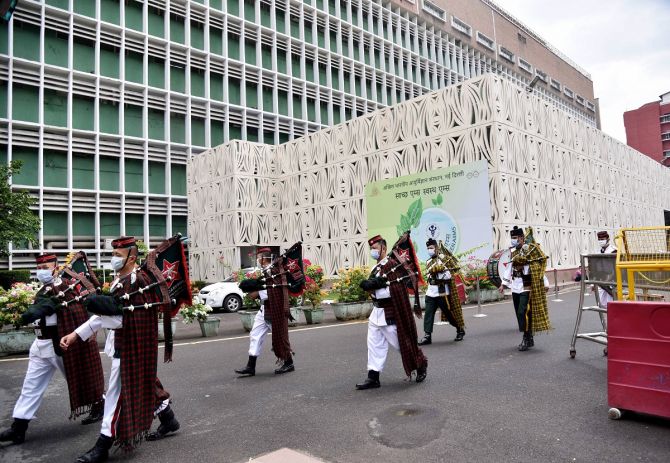
The move comes amid nationwide protests by resident doctors who have been demanding a special cental law to check violence against healthcare workers following the alleged rape and murder of a trainee doctor at a state-run hospital in Kolkata.
In a communication sent to all heads of central government hospitals, the ministry asked them to ensure adequate number of well secured duty rooms with basic amenities for female health professionals and deployment of women health professionals at night be preferably done in more than one in number.
They should be escorted in premises while on duty and proper arrangement of secured transport should be made for them for any movement at night.
The letter comes amid protests by resident doctors who have been demanding a special cental law to check violence against healthcare workers following the alleged rape and murder of a trainee doctor at a state-run hospital in Kolkata.
The ministry, in its communication, said that it has been evidenced for a long time that government hospitals are more permeable to the public compared to private facilities, making it easier for unauthorized individuals to enter freely.
"While accessibility is important for providing care, it can also pose security risks. Hospitals sometimes become target by acts of violence, including assault on staff, which can be related to disputes, dissatisfaction with medical care, or external criminal activities. Ensuring safety of healthcare professionals is vital," the ministry said.
Violence or harassment against staff can disrupt operations and affect quality of care provided to patients. Patient rush increases potential for conflicts and security breaches, it stated.
The ministry said that addressing these concerns requires a comprehensive approach to security that balances accessibility with effective measures to protect patients, staff and integrity of the facility.
Listing the actions to be taken to address the security issues, the ministry stressed on proper display of relevant penal provisions of the state legislation to prevent violence against healthcare workers in hospital premises.
It advised installing sufficient number of high-resolution CCTV cameras at strategic locations including entrances, exits, corridors, dark spots and sensitive areas.
A control room should be set up in the institute for quick response to an emergent situation. In the control room one admin staff should always be stationed along with security persons, it said.
It asked for employment of adequate number of well trained security guards for proper monitoring/ patrolling/ surveillance of the premises.
The ministry advised that entry and exit should be strictly monitored to allow entry to authorised personnel only.
"Identification badges for staff, patients, and visitors may be issued for easy identification of authorized personnel. Display of I-card by all hospital staff while on duty be made mandatory. Appropriate arrangements be made to ensure that all visitors are monitored," the ministry said in the communication.
It suggested that only one or two attendants be allowed with a patient at any point of time including visiting hours and with an attendant pass only while asking them to devise restricted access to certain areas.
It recommended drawing comprehensive plans for tackling various types of emergencies and said that these plans should be regularly updated and rehearsed, including conduct of periodic mock drills to train staff and security personnel for effective responses in emergency scenarios.
"All hospital staff, including doctors, nurses, and administrative personnel should be trained in recognizing and responding to security threats. They should be equipped with appropriate skills to handle emergency situations effectively," the ministry said.
Public address systems should be devised to quickly disseminate information during emergencies, it stated.
It also called for mapping of dark spots in the campus and adequate lighting in the premises should be ensured particularly in the duty areas of the lady health care staff, parking lots, entryways, etc.
The ministry asked hospital authorities to ensure a coordinated response in case of incidents in close coordination with local police and emergency services.
It advised updating security policies based on feedback and incident analysis.
"Adequate number of well secured duty rooms with basic amenities should be provided for female health professionals. Deployment of lady health professionals at night should be preferably done in more than one number.
"They should be escorted in premises while on duty and proper arrangement of secured transport should be made for them for any movement at night," it said.
Adequate number of patient facilitators and patient coordinators should be engaged for assisting patients, providing information and guiding the patients in the hospitals and institutes," the ministry stated
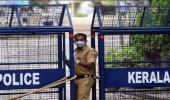


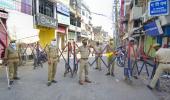




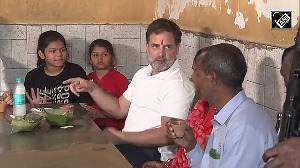

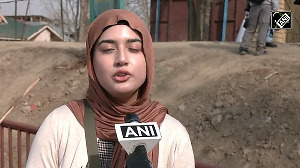
 © 2025
© 2025